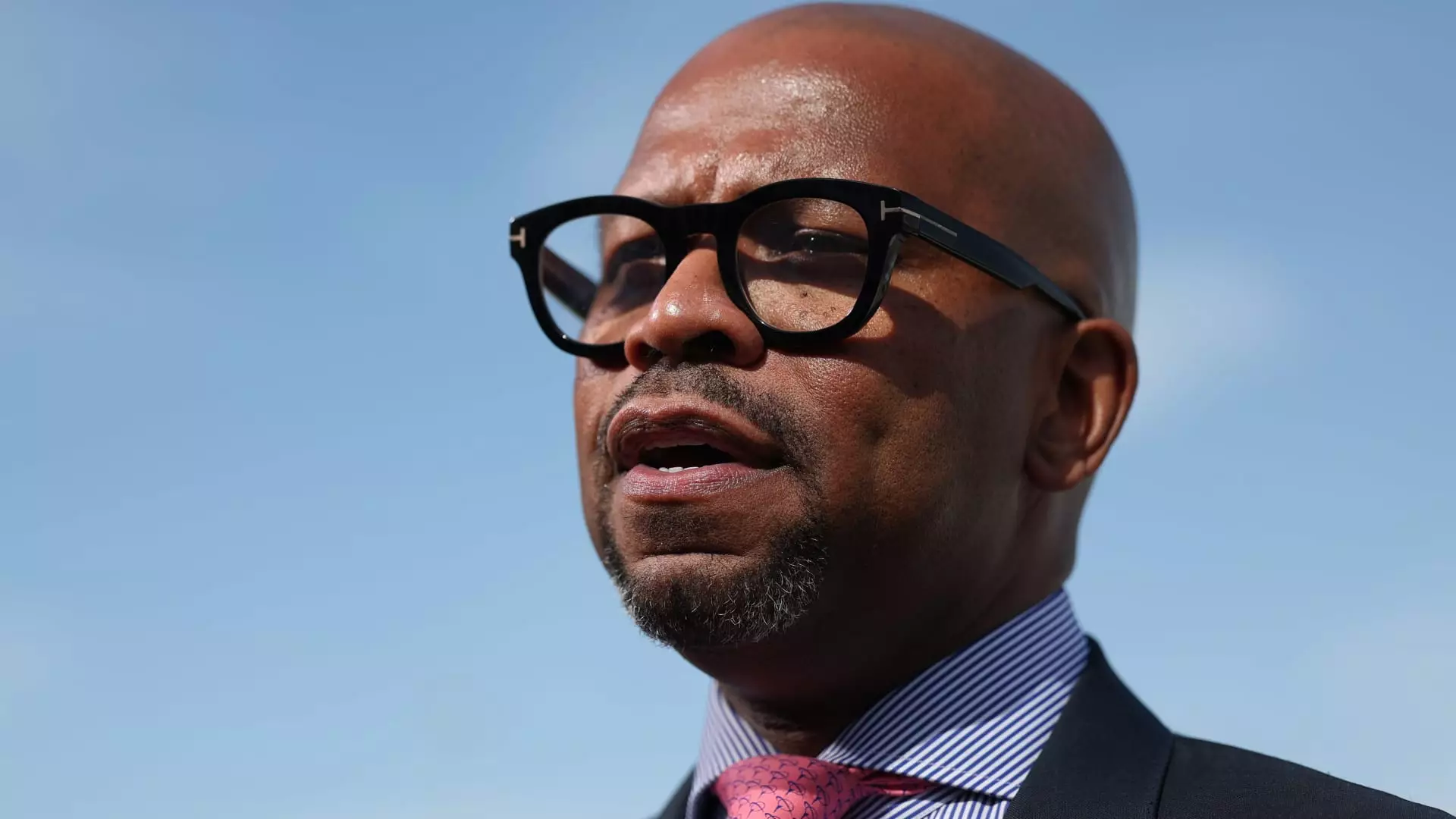In a surprising turn of events, Ted Colbert, head of Boeing’s defense division, has been relieved of his duties effective immediately. This announcement made by CEO Kelly Ortberg marks a decisive pivot as he steps into his leadership role. Ortberg emphasized the urgency of restoring confidence among customers in a memo to the staff, highlighting the company’s obligation to uphold its commitments and performance standards. Such a leadership change, especially during tumultuous times, suggests that Boeing is acknowledging the pressing need for transformation within its defense unit.
The defense sector has consistently been a cornerstone of Boeing’s business model, contributing significantly to overall revenue—nearly 40% in the first half of the year. However, this hopeful statistic belies the numerous challenges plaguing the division. Production issues and severe cost overruns have marred progress, particularly with the new 747 aircraft intended for the presidential Air Force One role. Furthermore, potential setbacks in the space segment, such as the Starliner mission failing to return astronauts safely, exacerbate concerns about operational effectiveness and reliability. These incidents raise questions about management’s ability to rectify ongoing issues promptly.
With COO Steve Parker stepping in as interim leader amidst this upheaval, the company faces a crucial juncture. Parker’s tenure in a temporary role presents both opportunities and challenges. The expectation now rests on his ability to stabilize a unit that has shown ineffectiveness in critical projects. An interim leadership situation can often yield rapid decision-making, but it can also create uncertainty, especially when long-term strategies are at stake. The pace at which the company fosters improvements in both production and delivery will be paramount in determining its future course.
Central to Ortberg’s communication was the essential need to regain trust and credibility with customers. Boeing’s reputation as a leading defense contractor is intertwined with its capability to fulfill contracts accurately and on time. The memo succinctly outlines a path forward: a collective effort to enhance performance and abide by commitments. However, mere rhetoric does little to assuage the concerns arising from previous shortcomings. It thus becomes imperative for the new leadership to not only address existing issues but also to cultivate a culture of accountability and innovation.
As Boeing navigates these tumultuous waters, the executive change at the helm of its defense unit serves as a potential inflection point. The company must harness this opportunity to initiate fresh strategies that can effectively tackle chronic production snags and rebuild relationships within the defense ecosystem. With immense pressure to deliver on both financial and operational fronts, the coming months will be critical in determining whether Boeing can reinvent itself and reaffirm its status as a trusted partner in global defense and aerospace initiatives.

